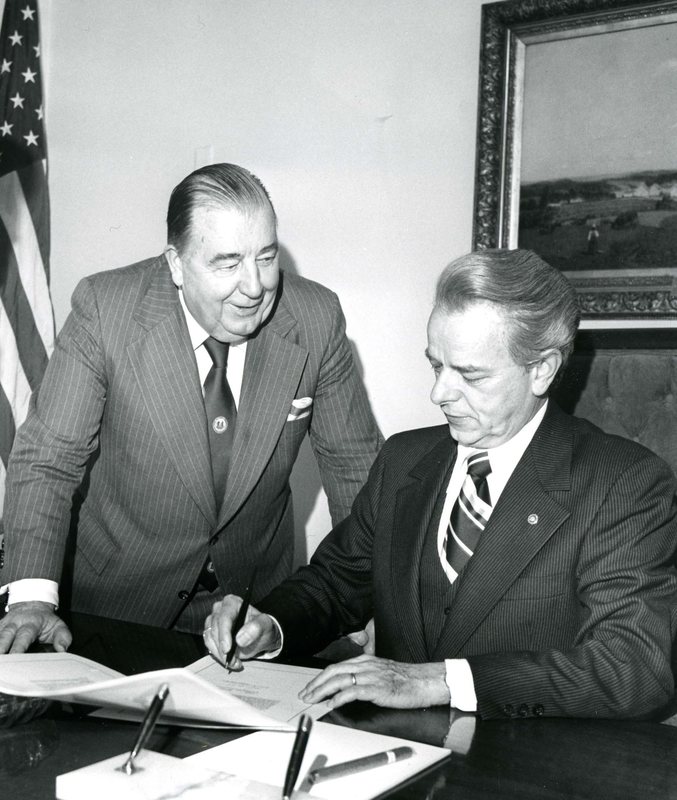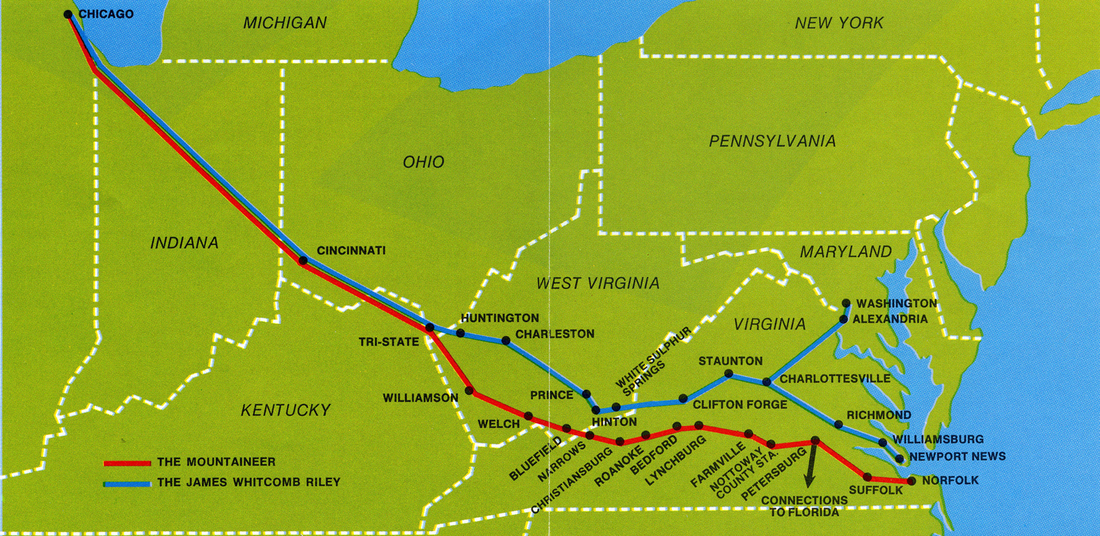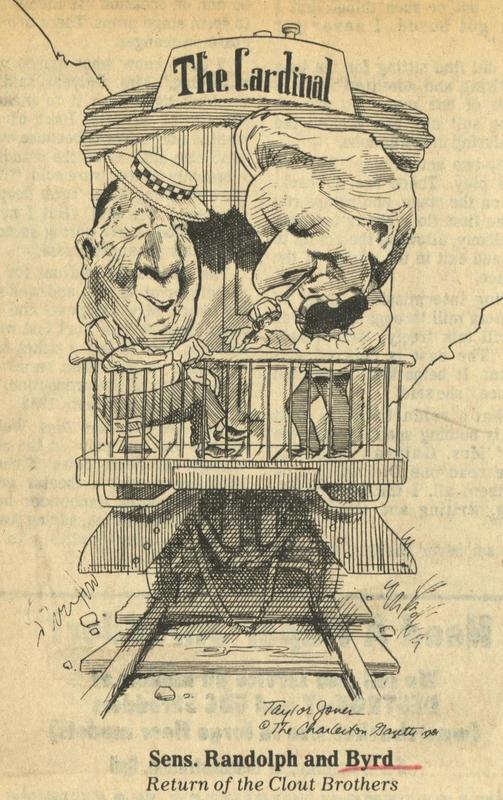|
By Jody Brumage This is the second in a two-part series of blogs on Senator Robert C. Byrd and Congressman Harley O. Staggers' efforts to save passenger rail service in West Virginia in the 1970s. To read the part one, click here.
In the spring of 1974, Senator Byrd went to the Appropriations Committee to secure $4 million to support the creation of The Mountaineer, a passenger train that would run on Norfolk and Western tracks. The line connected Norfolk, Virginia and Chicago. The train included stops at Bluefield, Welch, and Williamson, all cities that had been built by the railroads to export coal from West Virginia’s southern coalfields. On May 16, 1974, a House and Senate Conference Committee approved the appropriations bill which included Senator Byrd’s amendment providing $4 million for the new Amtrak Mountaineer line. Service was initiated on the line the following spring on March 24, 1975. Meanwhile, Amtrak was researching the possibility of creating a more cohesive route that would incorporate several early lines created after the establishment of the National Railroad Passenger Corporation in 1971. Some of these routes were designed as trials, such as the West Virginian and the Mountaineer, each meeting various degrees of success or failure. In seeking more stable operation of its passenger rail service, Amtrak laid the groundwork for a more permanent route that would in time become known as The Cardinal.
However, through the persistence of West Virginia’s senators as well as those of the various states impacted by the closure, funding was secured to reopen the Cardinal line in early 1982. The new route avoided the deteriorated infrastructure which had led to the decision to close the line. In one of his Byrd’s-Eye View columns, Senator Byrd remarked “As the only through-state train service in West Virginia, the Cardinal provides a valuable means of transportation for thousands of West Virginians…I worked for restoration of the Cardinal because I believe it was shortsighted to terminate this valuable train service.” This would not be the last time Senator Byrd fought to save the Cardinal line, but owing to his work and that of his colleagues in congress, the rail line continues to serve central West Virginia today.
Comments are closed.
|
Welcome to the Byrd Center Blog! We share content here including research from our archival collections, articles from our director, and information on upcoming events.
Categories
All
Archives
July 2023
|
Our Mission: |
The Byrd Center advances representative democracy by promoting a better understanding of the United States Congress and the Constitution through programs and research that engage citizens.
|
Copyright © Robert C. Byrd Center for Congressional History and Education
|




 RSS Feed
RSS Feed
